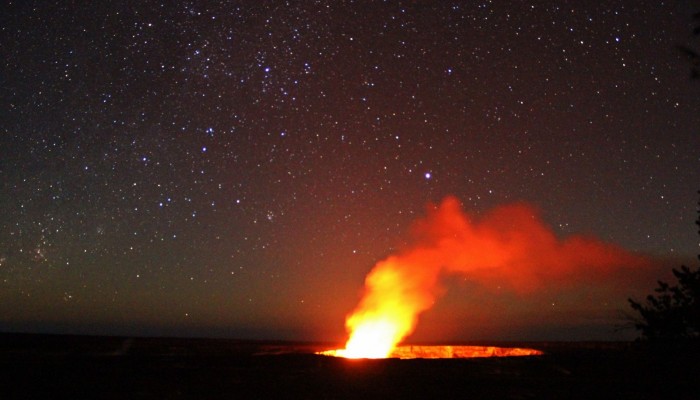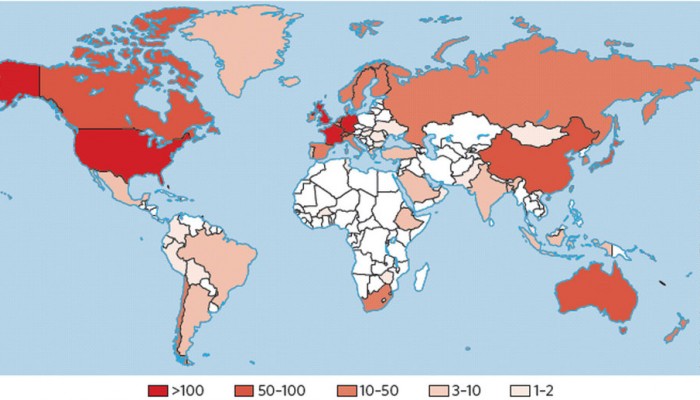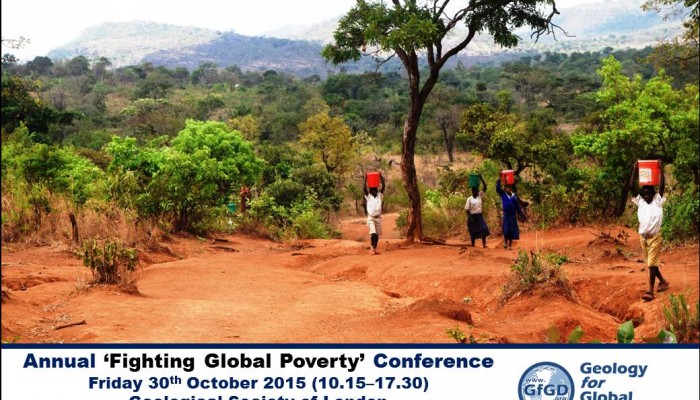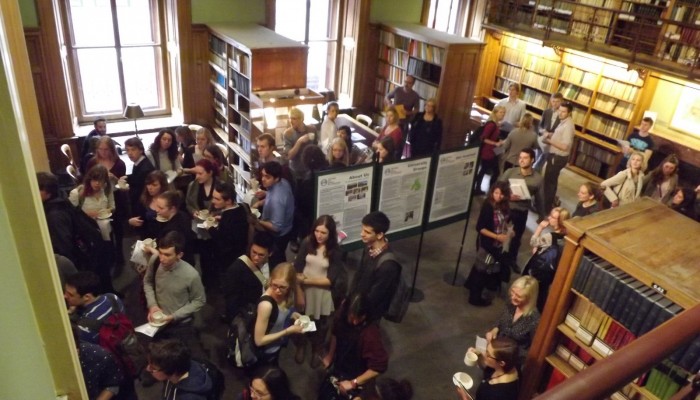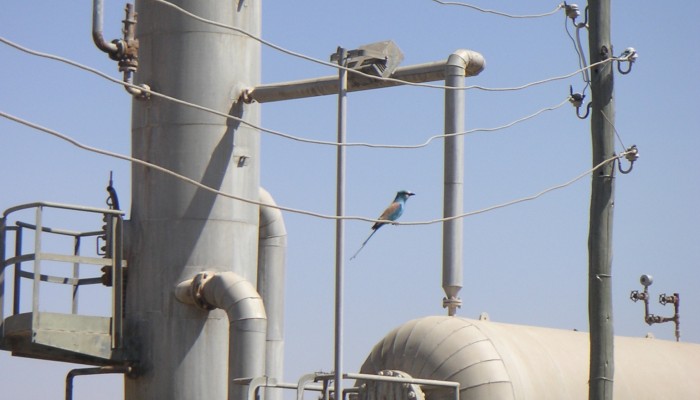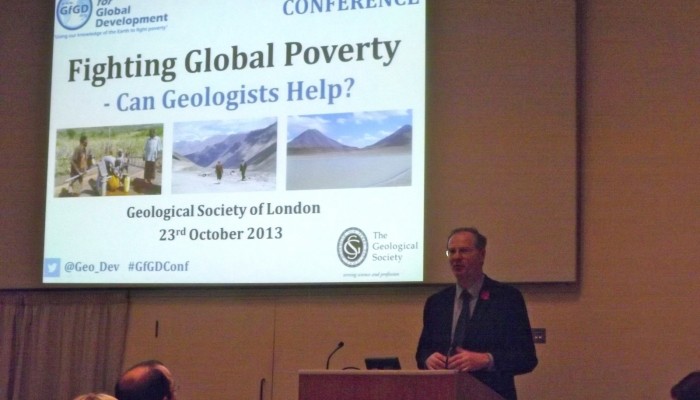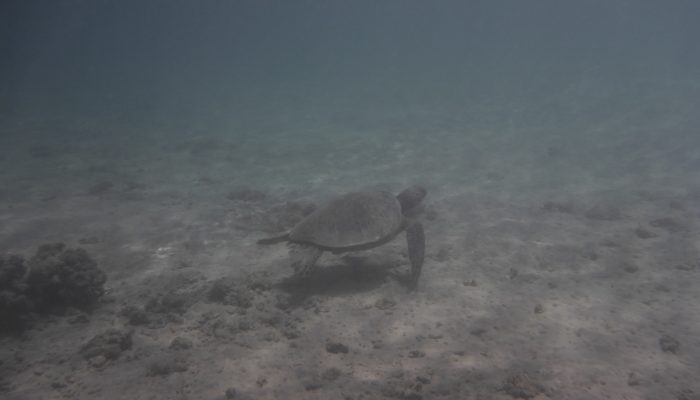This weeks photo can be described by one word: mesmerizing. Honestly, it’s hard to tell which part of this photo is better, the beautiful starry sky backdrop or the glow of Kilauea’s smoking crater. Combined, it’s just fantastic. Kilauea is part of the Hawaiian Island volcanic chain which has been formed as the Pacific plate has moved across at hotspot. The volcano is about 300,0 ...[Read More]
Geology for Global Development
Commentary: ‘Globalize Geoscience’ and International Capacity Strengthening
The international community will soon agree on a set of sustainable development goals. This is a significant moment for the international community, and a great opportunity for geoscience. Over the coming months a broad discussion is needed as to how we can best support this global effort to eradicate extreme poverty. One important way this can be done is through ‘globalizing geoscience̵ ...[Read More]
Geology for Global Development
GfGD Annual Conference 2015 (3) – Registration Open
Tickets are now on sale for the GfGD Annual Conference. You can register online here.
Geology for Global Development
GfGD Annual Conference 2015 (2) – Present a Poster
We are offering seven people the fantastic opportunity to prepare and present an A1 poster at the next GfGD Annual Conference. We are looking for volunteers to take on each of the following themes: Goal 2: End hunger, achieve food security and improved nutrition and promote sustainable agriculture. Goal 6: Ensure availability and sustainable management of water and sanitation for all. Goal 9: Buil ...[Read More]
Geology for Global Development
GfGD Annual Conference 2015 (1) – Conference Theme
In September the ‘Sustainable Development Goals’ will be agreed – an ambitious set of targets, building on the Millennium Development Goals. These goals and associated work plans will set out how the world will work to promote poverty eradication, change unsustainable consumption patterns and facilitate sustained and inclusive economic growth, social development and environmental ...[Read More]
VolcanicDegassing
Energy Poverty and Geothermal Energy Futures
Ethiopia is one of the most impoverished nations in the world, in terms of the number of people who live without access to electricity. The World Energy Outlook reported that in 2014, 70 million people in Ethiopia, or 77% of the population, have no access to electricity. Ethiopia is also one of the more volcanically-active regions of the world, with 65 volcanoes or volcanic fields that are thought ...[Read More]
GeoSphere
Geology Photo of the Week #42
This week’s photo is a beautiful example of geochemistry in action. Briefly, travertine, which is composed of CaCO3 is often precipitated at hot springs as they emerge from the ground forming these gorgeous terraces. The reason for their formation is Henry’s gas law in action which states “the solubility of a gas in a liquid is directly proportional to the partial pressure of the ...[Read More]
Geology for Global Development
Photo Diary – 4 Years of GfGD
We’ve recently celebrated our 4th birthday! Since our work started in 2011 we’ve had some great adventures, met some inspiring people and learnt a lot. Most of our work is taking place in universities around the UK. Through seminars and events we suspect that more UK geology students are being introduced to their role in international development than at any time previously. Alongside ...[Read More]
WaterUnderground
Water underground is flowing again….
After a joyous eight-month-long paternity leave, I am back being a professor during the day, and now being a dad at night. A little visual teaser of my time off is below – swimming with a sea turtle on the north shore of Kauai, Hawaii. On top of becoming a dad, I changed universities; I am now in Civil Engineering at University of Victoria. It is a rad new program focusing on sustainability ...[Read More]
GeoSphere
Photo of the Week # 41
I am furiously writing my Ph.D thesis at the moment. I am close to submitting. I swear! Although, everyone I know says I sound like a broken record when I say this. Anyway, while I have been doing all this writing I haven’t had much time for blogging, for which I apologize. However, in the interest of breathing some life into this dusty old thing I have decided to re-introduce the photo of t ...[Read More]

